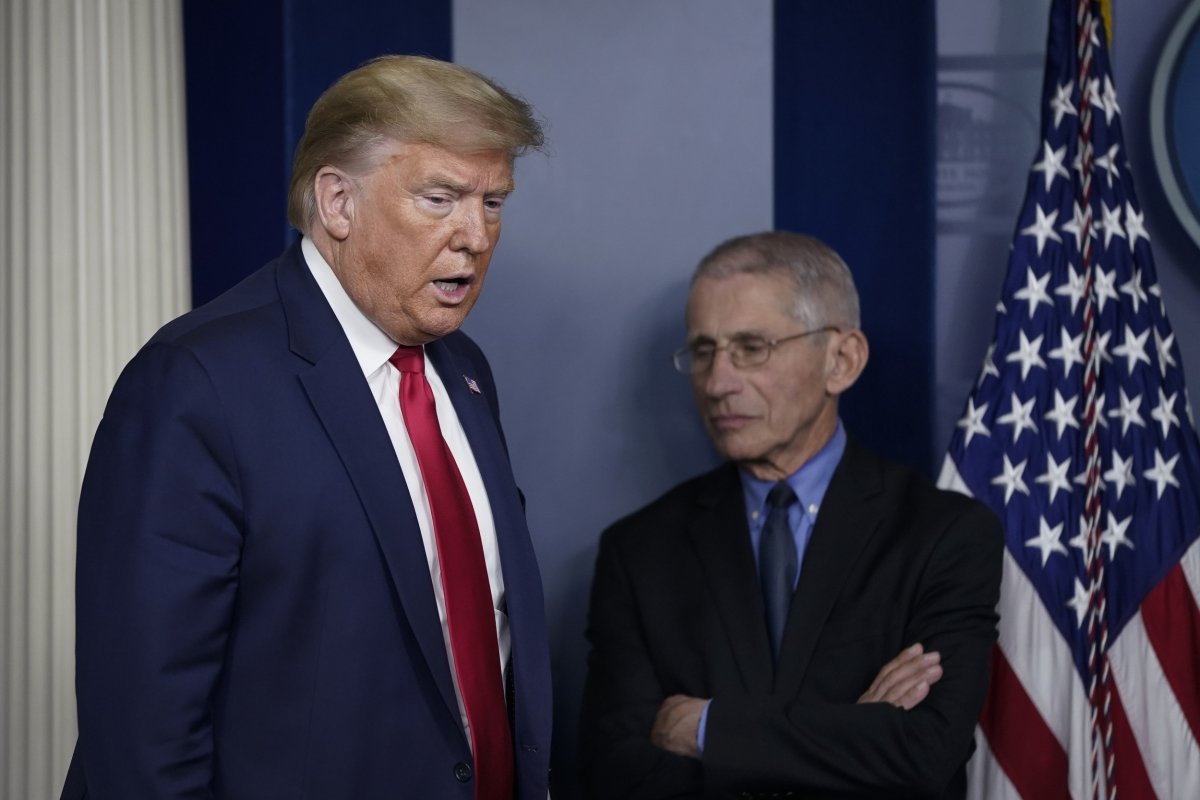🎙️ Voice is AI-generated. Inconsistencies may occur.
As one of his final acts before leaving the Oval Office, Joe Biden issued a sweeping preemptive pardon for Dr. Anthony Fauci, shielding the nation's former top infectious disease expert from possible legal scrutiny in the future.
Fauci, who has never been charged with a crime, served as the director of the National Institute of Allergy and Infectious Diseases for nearly 40 years, including during Donald Trump's presidency and for the emergency phase of the Covid pandemic. He later became Biden's chief medical adviser, holding the position until his retirement in 2022.
During the early days of the pandemic, Fauci played a pivotal role in coordinating the nation's response, often clashing with Trump over unproven public health strategies. Since then, he has faced scrutiny, particularly from Republicans and conservative groups who blame him for mask mandates and other policies they argue infringed on personal freedoms, didn't work, or both — even as the pandemic was claiming thousands of American lives a day.
Newsweek reached out to Fauci for comment on his pardon but did not immediately receive a response.

While many assumed the pardon was engineered to shield Fauci, often referred to as "America's doctor," from MAGA retribution, the act of clemency raised eyebrows for another reason: Biden backdated the pardon to 2014, a date nearly six years before the first cases of SARS-CoV-2 emerged.
"I believe in the rule of law, and I am optimistic that the strength of our legal institutions will ultimately prevail over politics," Biden said in a statement on Sunday, defending his pardons. "But these are exceptional circumstances, and I cannot in good conscience do nothing."
Though the pardon is not an admission of wrongdoing, critics on the right quickly denounced Biden's decision as an unprecedented political maneuver that could deepen public distrust. The executive order, which covers actions dating back to January 1, 2014, ostensibly shields Fauci from allegations tied to U.S.-funded gain-of-function research in addition to his work during the COVID-19 pandemic.
It also protects him from retribution related to the theory, still unconfirmed, that COVID-19 "leaked" from a lab in Wuhan, the Chinese city where the virus was first identified, and that the U.S. government had knowledge of this at the time.

The Wuhan link
In 2021, a report by Republican lawmakers cited "ample evidence" suggesting the Wuhan lab was working to modify coronaviruses to infect humans — what is known as "gain-of-function," a controversial research technique intended to deepen understanding of potential pathogens that can become pandemics. The report called for a bipartisan investigation into the virus' origins. At the center of this controversy was Fauci, with allegations that U.S. taxpayer money may have actually supported the research in question.
At a Senate hearing in November 2021, Republican Senator Rand Paul alleged that U.S. funds were used for gain-of-function research at the Wuhan Institute of Virology to make viruses more infectious and deadly. Paul and other Republicans pointed to U.S. funding for other projects at the same Wuhan lab as evidence of Fauci's role in the pandemic's origins—a claim Fauci has consistently denied.

However, documents from the National Institutes of Health (NIH), the organization for which Fauci worked, reveal that EcoHealth Alliance, a U.S.-based nonprofit research group led by Peter Daszak, was awarded a grant to study potential coronaviruses from bats in 2014.
Around the same time, the U.S. government announced a pause on funding for new gain-of-function research projects involving influenza, SARS, and MERS viruses. This decision was made to assess the risks and benefits associated with such studies. The moratorium was lifted by the NIH in 2017.
The NIH-funded research had two phases. The first phase, beginning in 2014 with a budget of $3.7 million, focused on the surveillance of bat coronaviruses. This project, which concluded in 2019, funded Shi Zheng-Li, a virologist at the Wuhan Institute, and other researchers to investigate and catalog bat coronaviruses in the wild.
A second phase of the project, starting in 2019 after the moratorium lifted, included further surveillance as well as gain-of-function research aimed at understanding how bat coronaviruses could mutate to infect humans. While this phase was renewed for five years, the Trump administration canceled it in April 2020, following the outbreak of Covid in the U.S.
What has Fauci said?
During the 2021 Senate hearing, Fauci defended the research, stating it "has been evaluated multiple times by qualified people" and does not meet the strict definition of gain-of-function. He further argued it was "molecularly impossible" for the studied viruses to have caused COVID-19, though he did not elaborate further.
Both the NIH and EcoHealth have denied funding gain-of-function research in China, maintaining that their project focused solely on studying newly discovered bat viruses and their spike proteins at a molecular level without altering the viruses' environments or physiological states.

Dr. Ralph Baric, a U.S. scientist who collaborated with the Wuhan Institute on a 2015 study of bat viruses, issued a detailed statement to the Washington Post affirming that none of the viruses involved in the study were related to SARS-CoV-2, the virus better known as Covid-19.
Despite these denials, Fauci has expressed concerns for his safety, revealing fears of being targeted for assassination. Conservative figures such as former Trump adviser Steve Bannon and podcaster Joe Rogan have publicly called for his prosecution. Biden's pardon, while intended to protect Fauci, has drawn criticism it instead fuels suspicion and provides more reasons for the public to doubt the official story of the pandemic's origins.
"If there was ever any doubt as to who bears responsibility for the COVID pandemic, Biden's pardon of Fauci forever seals the deal," Senator Paul said in a statement. "Fauci's pardon will only serve as an accelerant to pierce the veil of deception."
fairness meter
About the writer
Jesus is a Newsweek reporter based in New York. Originally from Bogotá, Colombia, his focus is reporting on politics, current ... Read more



